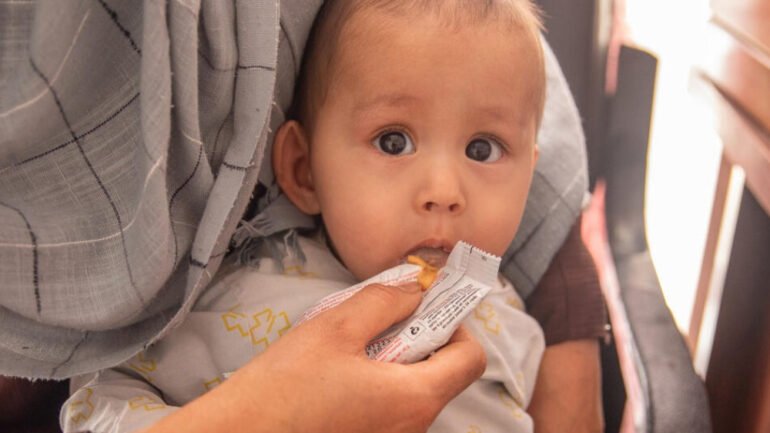Our Terms & Conditions | Our Privacy Policy
UNICEF Warns of Severe Food Poverty Among Half of Afghanistan’s Children

UNICEF warns that severe food poverty affects over half of Afghanistan’s children, driving a growing malnutrition crisis and threatening long-term child health.
The United Nations Children’s Fund (UNICEF) has issued a warning that severe food poverty is affecting half of Afghanistan’s young children, becoming a major driver of the country’s widespread malnutrition crisis.
UNICEF has stated that food poverty among children has reached alarming levels and is one of the key reasons behind the extensive malnutrition in Afghanistan. According to the organization, over 50% of Afghanistan children under five are living in conditions of extreme food poverty, lacking regular access to sufficient and nutritious food.
In response to this growing crisis, UNICEF has announced the launch of a new program aimed at reducing child food poverty. The initiative includes nutritional support, public awareness campaigns for families, and strengthening health services related to child nutrition.
UNICEF explained that the goal of the program is to achieve long-term reduction of food poverty by actively involving families, health workers, and local institutions in the process.
Afghanistan has been grappling with severe economic challenges in recent years, including prolonged drought, high unemployment, and a sharp decline in international aid. These factors have especially worsened conditions for children, leading to a serious malnutrition crisis. UNICEF and other international organizations have repeatedly raised alarms about the dire situation facing Afghanistan children.
If current conditions persist, there is a growing risk that the health and development of children will deteriorate even further in the country. Without urgent intervention, the long-term consequences for the country’s future generation could be devastating.
International cooperation, renewed aid efforts, and a focus on sustainable development are essential to reversing this trend. Organizations like UNICEF continue to play a critical role, but long-term solutions will require broader global commitment and support for Afghanistan’s most vulnerable populations.
Images are for reference only.Images and contents gathered automatic from google or 3rd party sources.All rights on the images and contents are with their legal original owners.



Comments are closed.